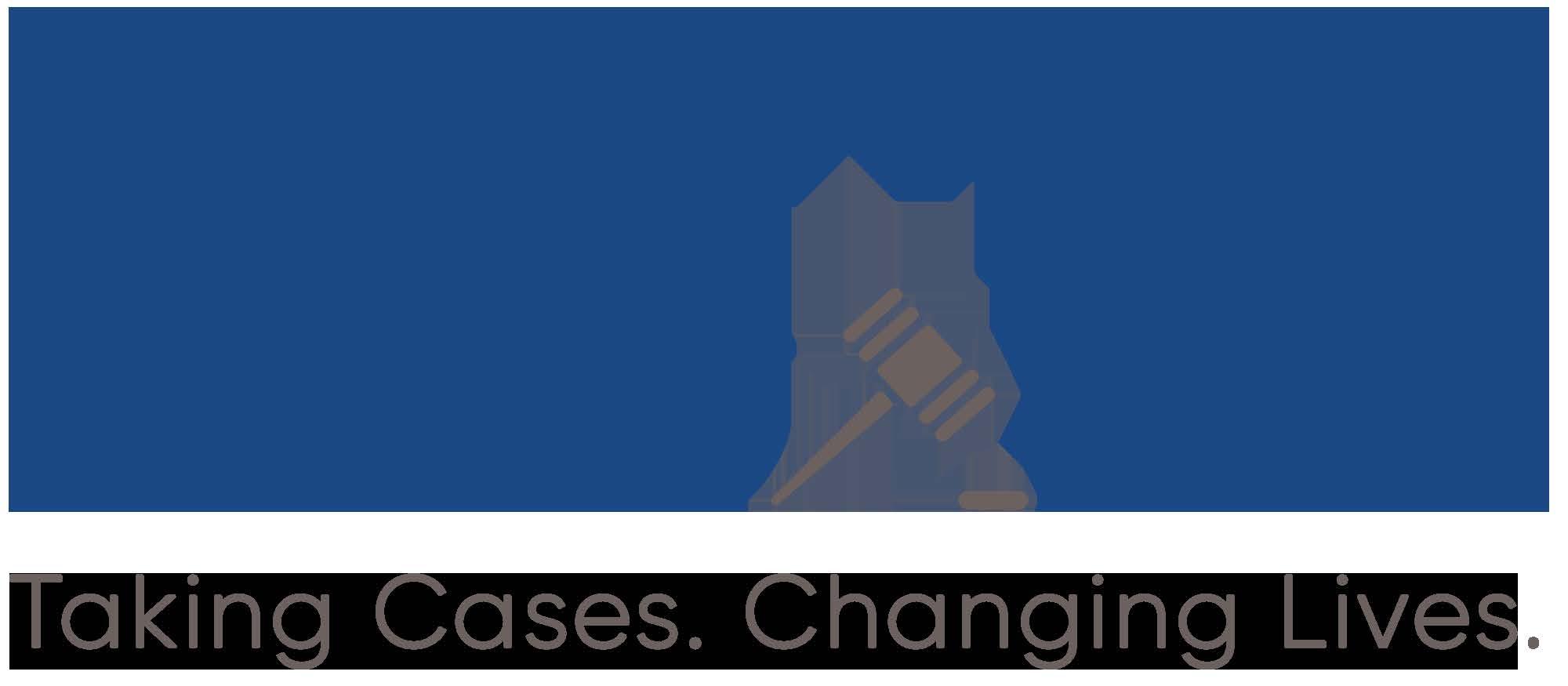

Agenda
I. Welcome/Introductions (5 minutes)
II. Why Pro Bono? The Need for Civil Legal Aid (10 minutes)
III. Factors to Consider When Selecting a Pro Bono Program (10 minutes)
IV. Choose a Program that Works for You (10 minutes)
V. Expectation of Ethical Pro Bono Volunteers (15 minutes)
VI. Next Steps/Questions (10 minutes) Adjourn
Speaker Biography
Emerald Sheay, Esq. is a staff attorney at Volunteer Lawyers for Justice who focuses on pro bono recruitment, training, and case placement. Emerald additionally supports VLJ’s Children’s Representation Program, Divorce Program, and PRIDE Name Change Program. Prior to joining VLJ, Emerald practiced family law, and clerked for the Honorable Lisa F. Chrystal, P.J.F.P. at the Superior Court of New Jersey – Family Division in Union County. Emerald also volunteered with VLJ’s Divorce Program while in private practice.
Emerald is especially passionate about advocating for those without access to the judicial process, including children and animals. She shares the sentiment of former Attorney General Janet Reno that lawyers who engage in “pro bono service to protect those who cannot help themselves are truly the heroes and the heroines of the legal profession.” Emerald currently sits as the Co-Chair of the New Jersey State Bar Association’s Animal Welfare Committee. She has published articles on family law, animal law, and empathetic lawyering in the Animal Law Review, New Jersey Lawyer Magazine, and New Jersey Family Lawyer.
Emerald earned a bachelor’s degree summa cum laude in music from Rowan University and a Juris Doctorate cum laude from Seton Hall Law School, where she received the “Dean’s Award” upon graduation. She is admitted to practice in New Jersey and the United States District Court of New Jersey.
Outside of VLJ, Emerald performs with professional chamber choir Vocala Ensemble, and is an active member of the Union County Bar Association
SECTION 1: Relevant Rules, Articles
and Resources
Relevant
Relevant Rules, Articles and Resources
New Jersey Court Rules
R.1:13-2(a)
R.1:13-2(b)
R.1:21-1
Rules of Professional Conduct
R.1:21-3
R. 1:21-11
R.1:21-12(a)
R.1:21-12(b)
R.1:27-2(g)
R.1:21-3(c)
Articles
Lawrence S. Krieger & Kennon M. Sheldon, Ph.D., What Makes Lawyers Happy?: A DataDriven Prescription to Redefine Professional Success, 83 GEO. WASH. L. Rev. 554 (2015)
Additional Resources
Frequently Asked Questions-Pro Bono Assignments http://www.judiciary.state.nj.us/probono/probonofaq.pdf
New Jersey Lawyers’ Fund for Client Protection, Certification of Retirement – Legal Services Volunteer Form http://www.judiciary.state.nj.us/cpf/11621_cert_retire_lsv.pdf
**Selected statutes and rules included. All others listed above are available upon request**
SECTION 2: New Jersey Case Law
�

Positive
As of: November 17, 2015 5:59 PM EST
Mad en v. De ran
Supreme Court of New Jersey
October 22, 1990, Argued ; February 10, 1992, Decided A-34 September Term 1990
Reporter
126 N.J. 591; 601 A.2d 211; 1992 N.J. LEXIS 12
JOHN LEE MADDEN, ALLEN S. FERG, THOMAS M. BARRONandJOHN C. GILLESPIE, t/a MADDEN, FERG, BARRONandGILLESPIE, Attorneys-at-Law, apartnership, Plaintiffs-Appellants, and HUDSON COUNTY BAR ASSOCIATION, Intervenor, v. TOWNSHIP OF DELRAN, A Municipal Corp.; TOWNSHIP OF BASS RIVER; TOWNSHIP OF WASHINGTON; CITY OF BEVERLY; CITY OF BORDENTOWN; TOWNSHIP OF CINNAMINSON; TOWNSHIP OF DELANCO; BOROUGH OF FIELDSBORO; TOWNSHIP OF HAINESPORT; TOWNSHIP OF MAPLE SHADE; BOROUGH OF MEDFORD LAKES; TOWNSHIP OF NEW HANOVER; BOROUGH OF WRIGHTSTOWN; BOROUGH OF PEMBERTON; TOWNSHIP OF RIVERSIDE; TOWNSHIP OF SHAMONG; TOWNSHIP OF SPRINGFIELD; and TOWNSHIP OF TABERNACLE, Defendants, and STATE OF NEW JERSEY, Office of the Public Defender; ALFRED A. SLOCUM, Public Defender; and BURLINGTON COUNTY BOARD OF CHOSEN FREEHOLDERS, Defendants-Respondents.
Prior History: [***l] On certification to the Superior Court, Appellate Division.
Core Terms
assigned, municipal court, attorneys, municipalities, public defender, cases, indigent defendant, counties, pro bono, assigned counsel, unfairness, courts, appointment, vicinage, inequality, statewide, municipal court judge, branch of government, deprivation, indigent, funds, equal protection, presentsystem,trial court, experienced, designated, services, invalid, revised
Case Summary
Procedural Posture
Appellant bar association challenged the judgment of the Superior Court (New Jersey), which sustained the
constitutionality of New Jersey's system of requiring attorneys to represent indigents without receiving compensation.
Overview
Appellant bar association brought an action challenging the constitutionality of NewJersey's system ofrequiringlicensed attorneys to represent indigents without compensation. The trial court upheld the constitutionality of the system, and appellant challenged thejudgment. Thejudgment of the trial court was affirmed but modified to require every New Jersey municipality to provide a public defender for the municipal courts.The courtheldthatitwas nota deprivation to require New Jersey attorneys to represent indigents without compensation. The court held that the state's ultimate goal was to provide equal legal representation to indigents, that there was no quantification of the unfairness to attorneys, and that the statewide system did not deprive attorneys of equal protection of the law, because any inequality was unintended.
Outcome
Thejudgment of the trial court was affirmed butmodified to require every New Jersey municipality to provide a public defender for the municipal courts. The court held that itwas not deprivation to require New Jersey attorneys to represent indigents without compensation.
LexisNexis® Headnotes
Criminal Law & Procedure > Commencement of Criminal Proceedings > Counsel > Assignment of Counsel
HNI If the assignment of counsel without compensation in most New Jersey counties is fairly distributed among all attorneys, and in those counties in which it is not, the disparity is minimal, then the system itself is not rendered invalid.








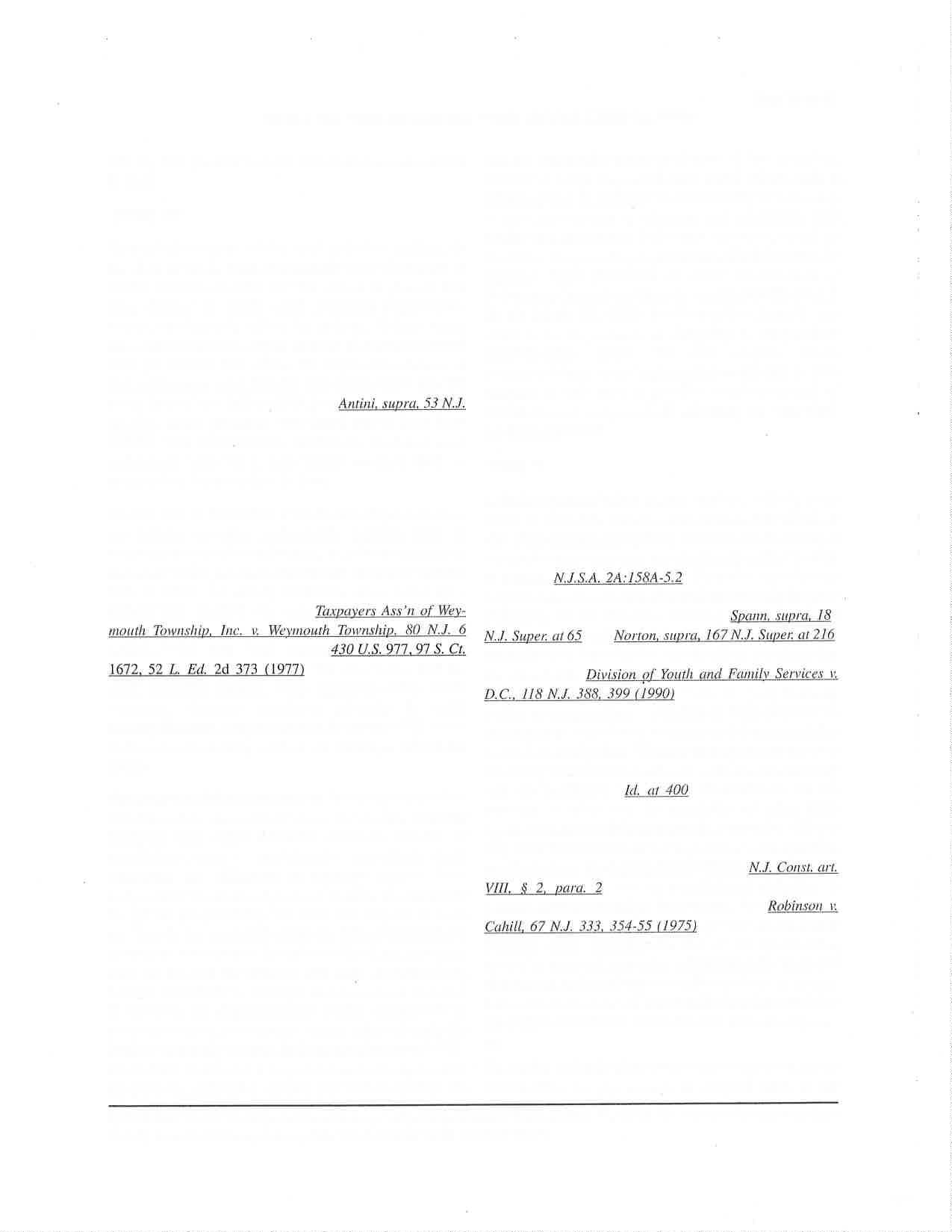
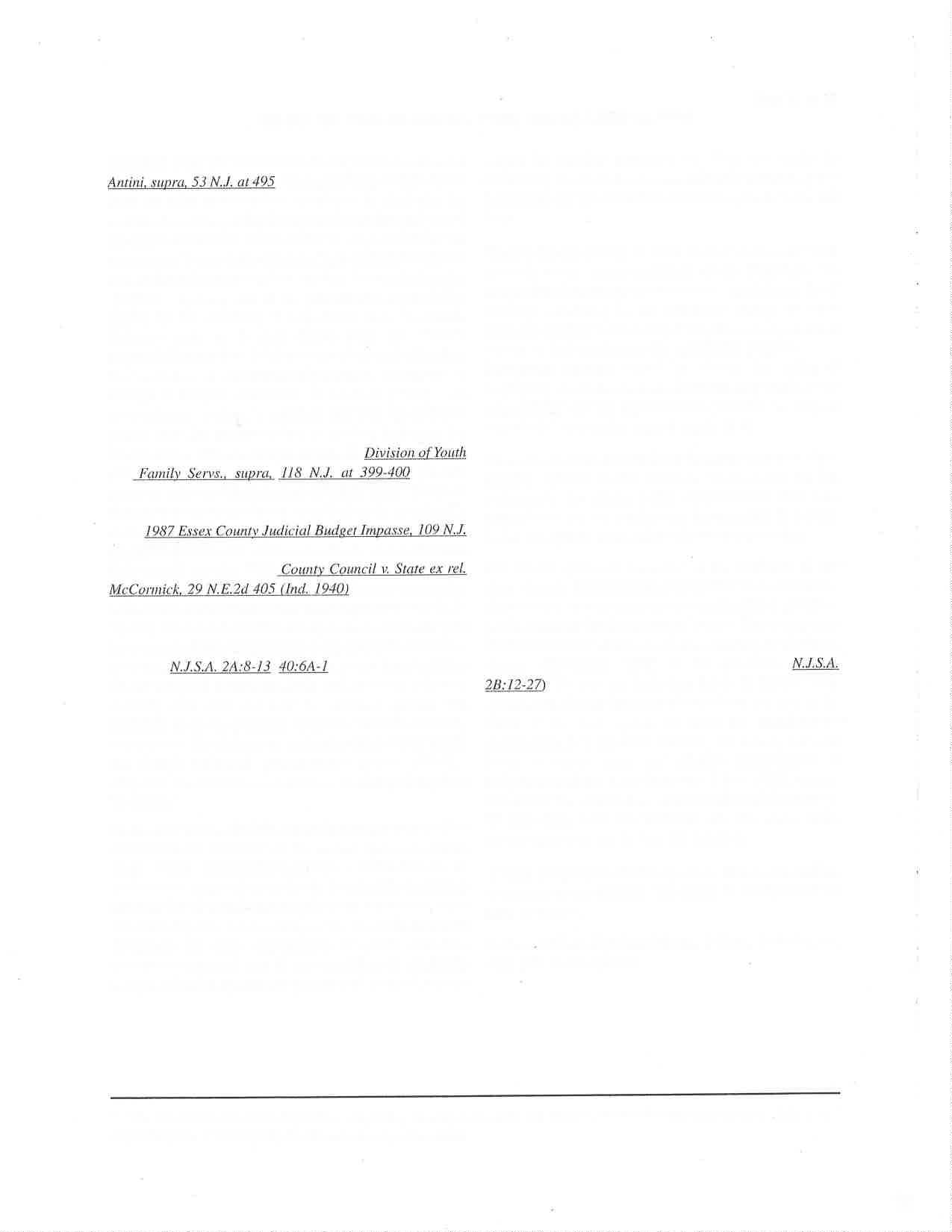

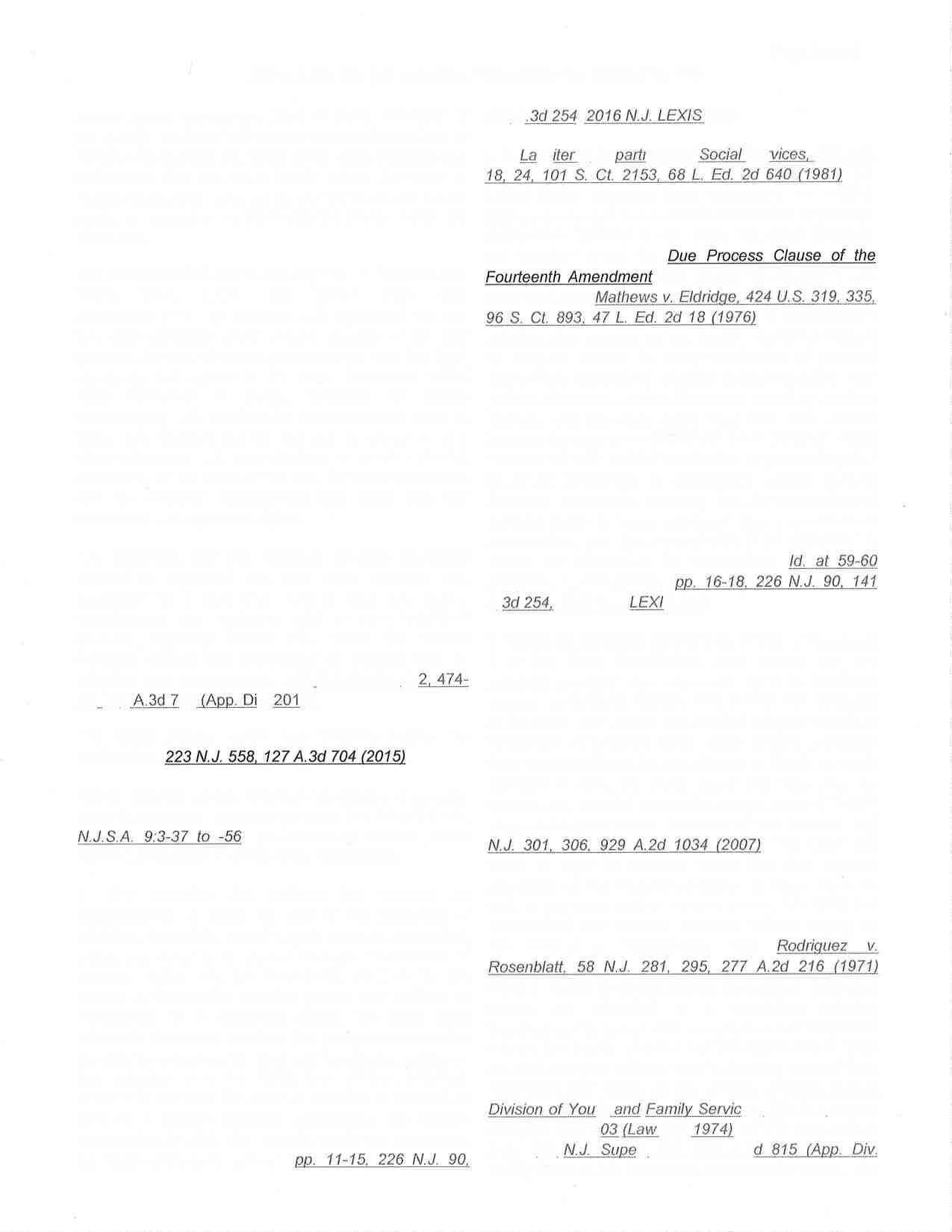





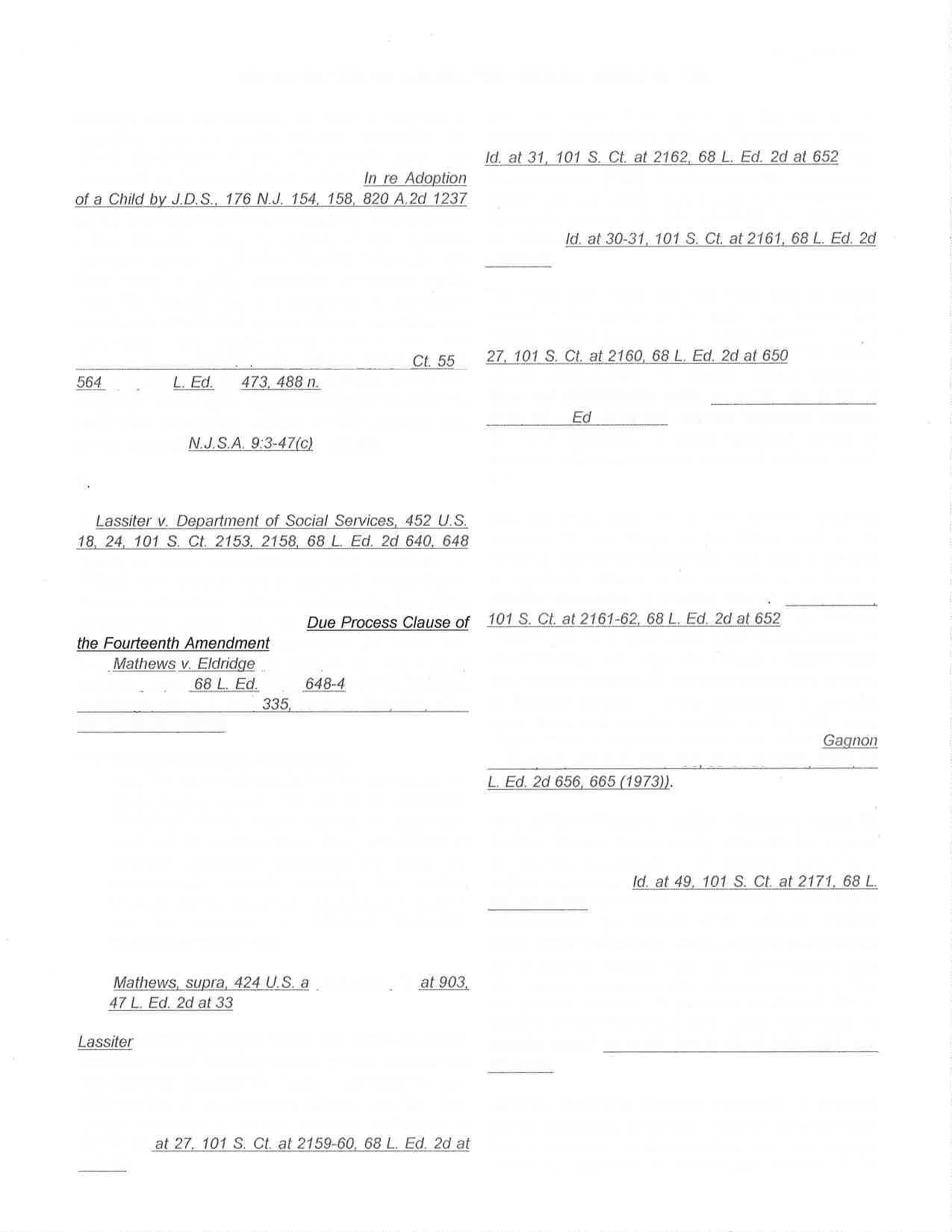


SECTION 3: New Jersey Ethics Opinions










SECTION 4: Articles





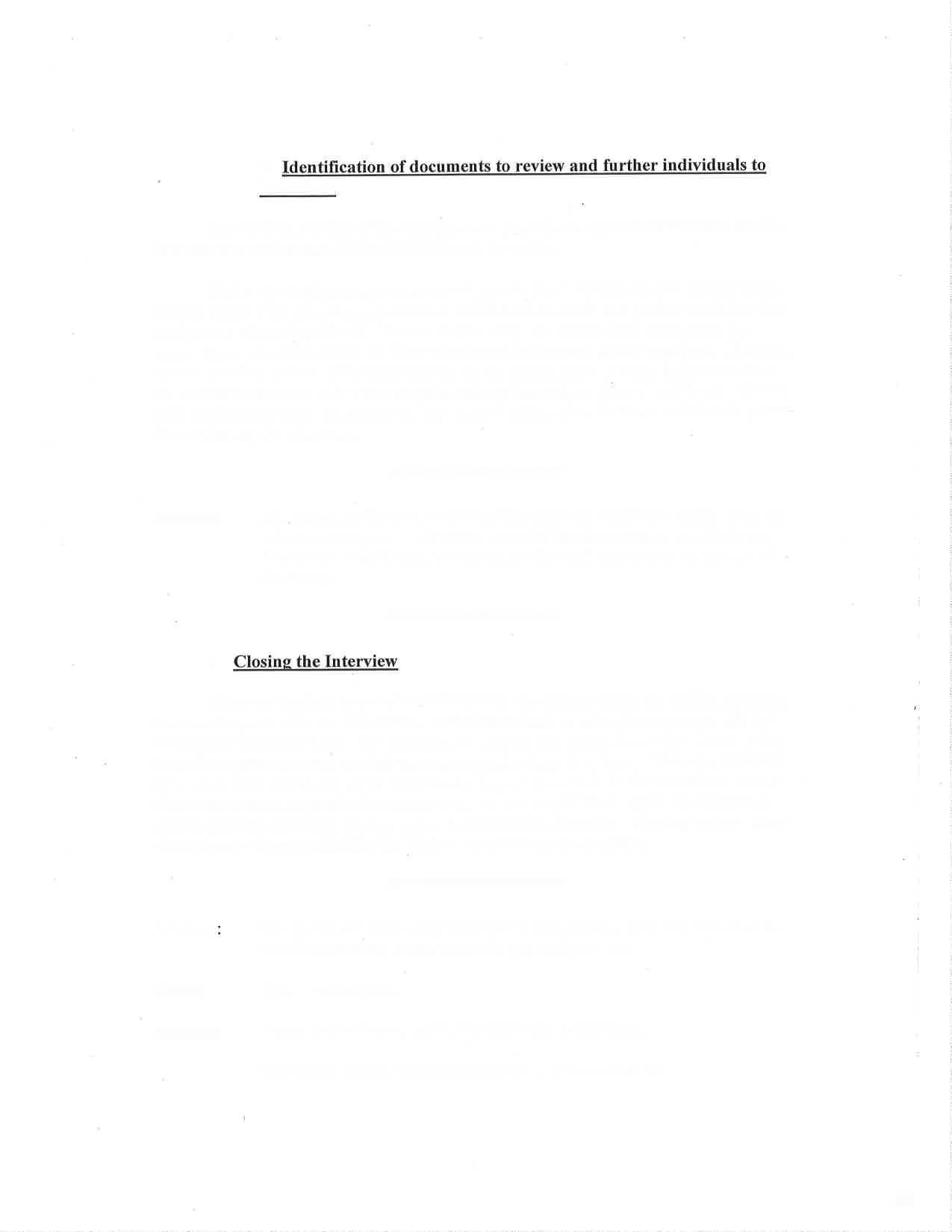
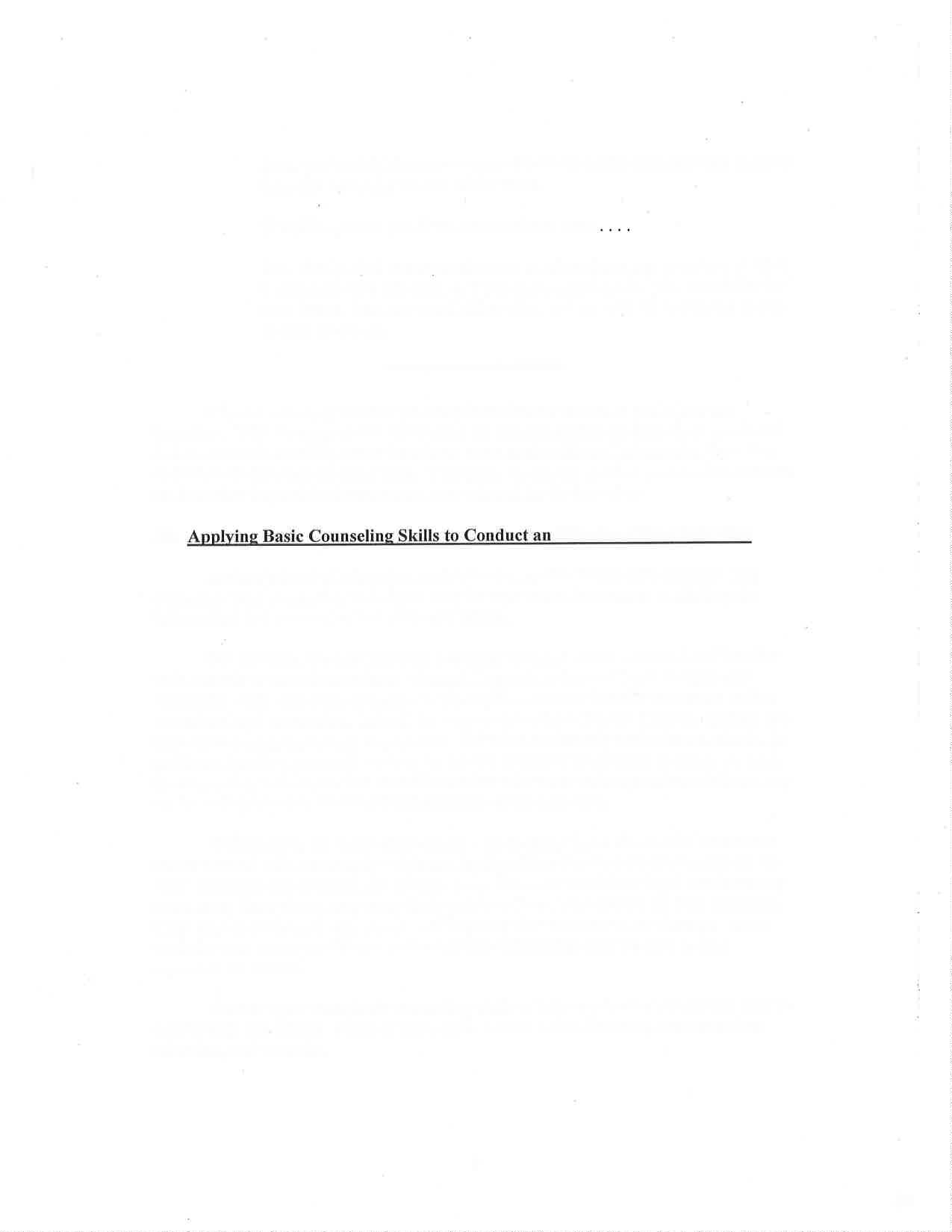




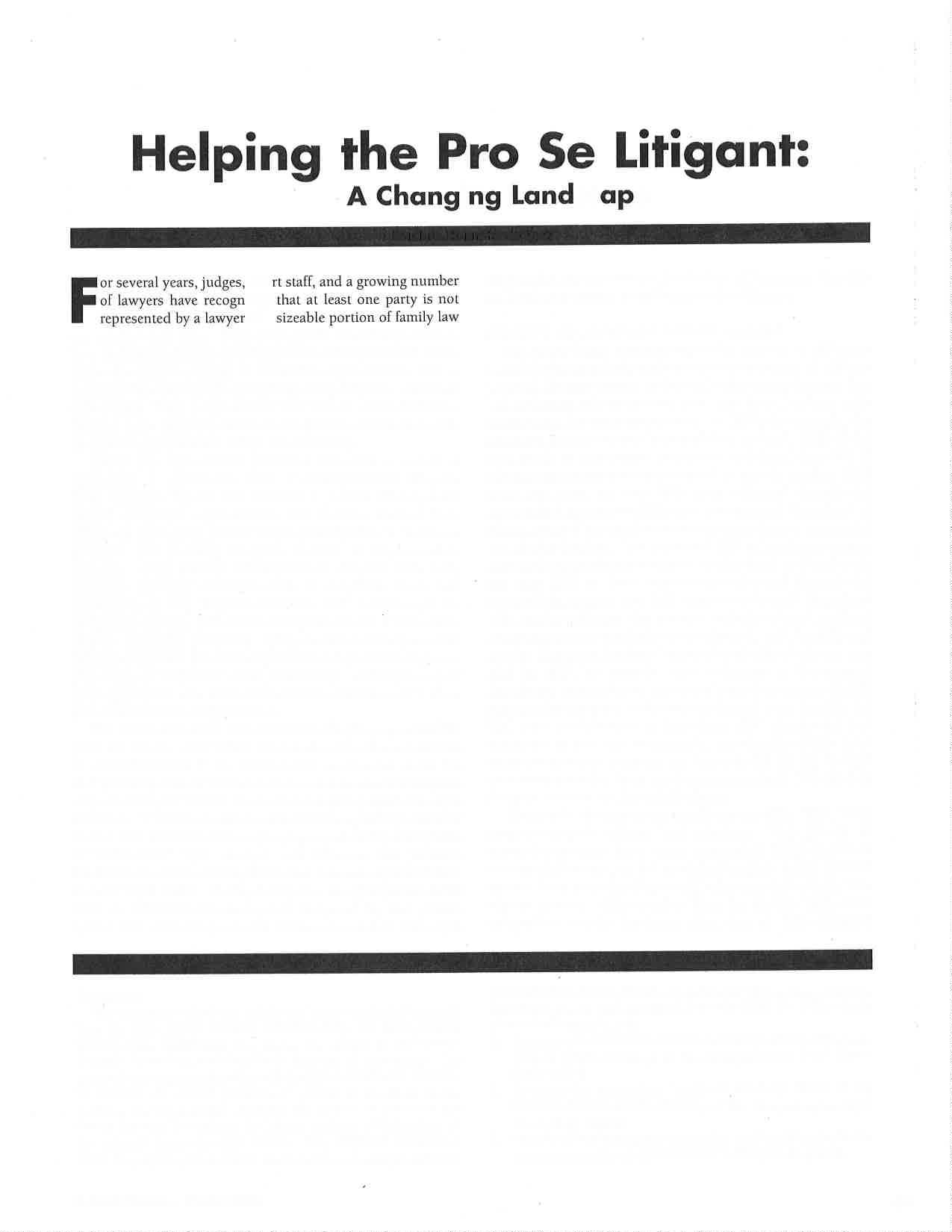




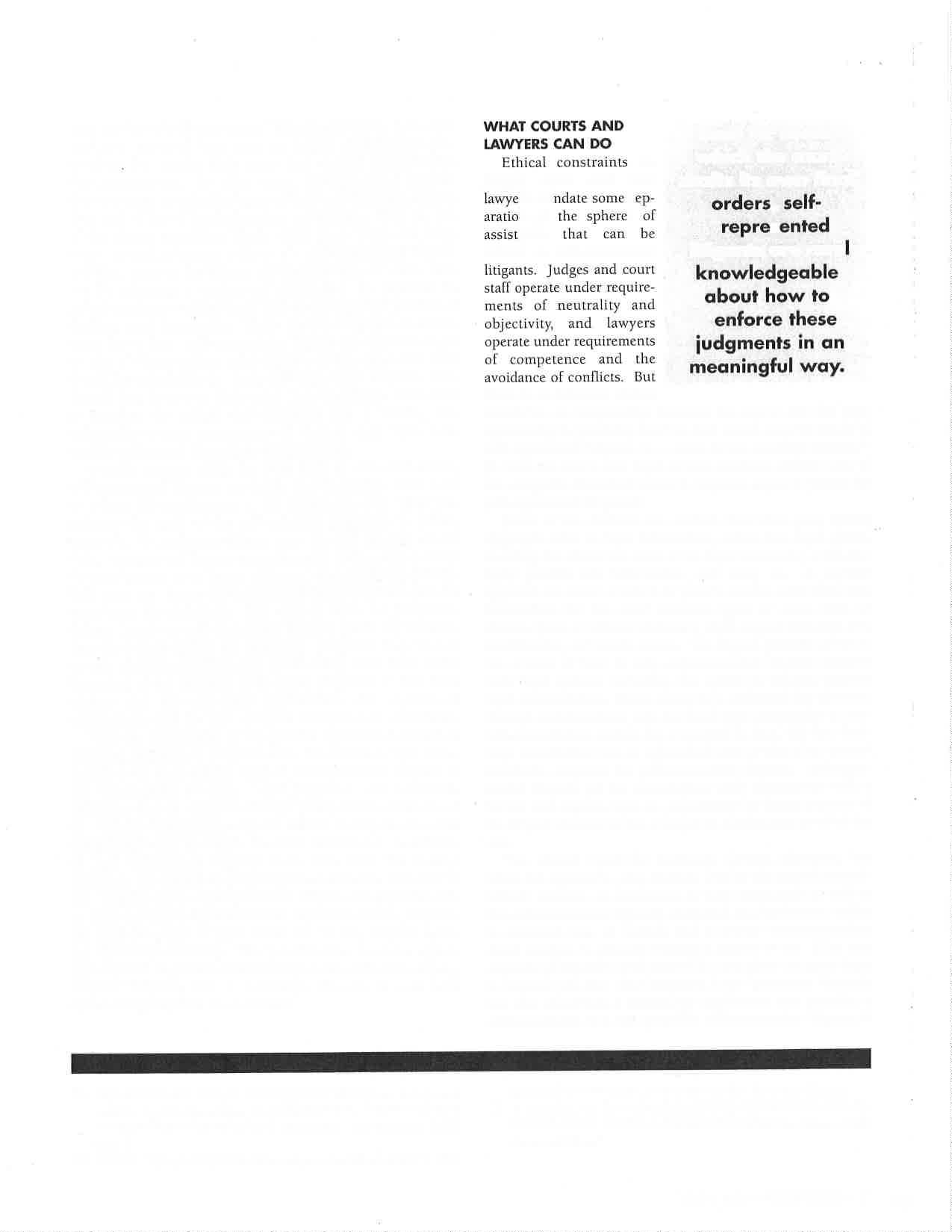

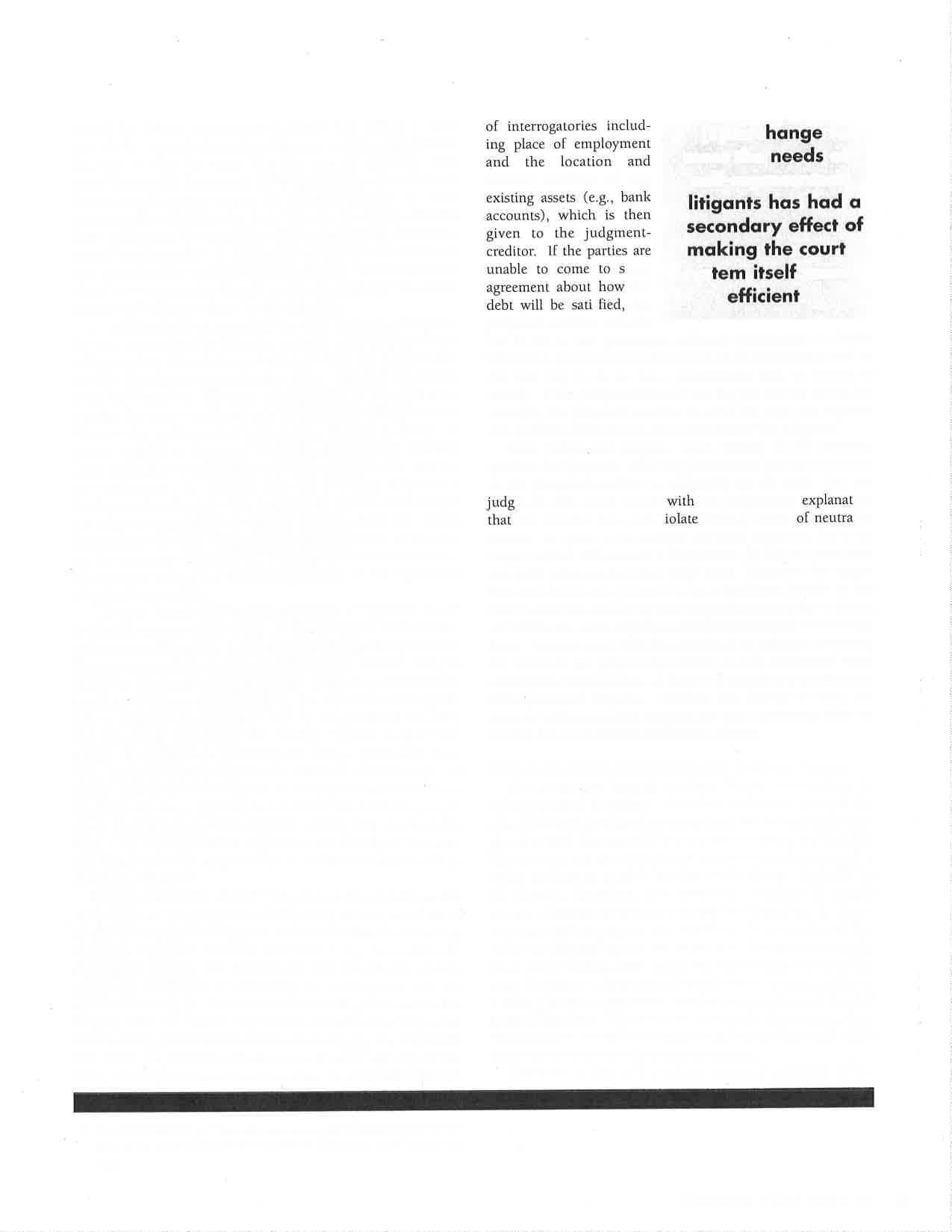

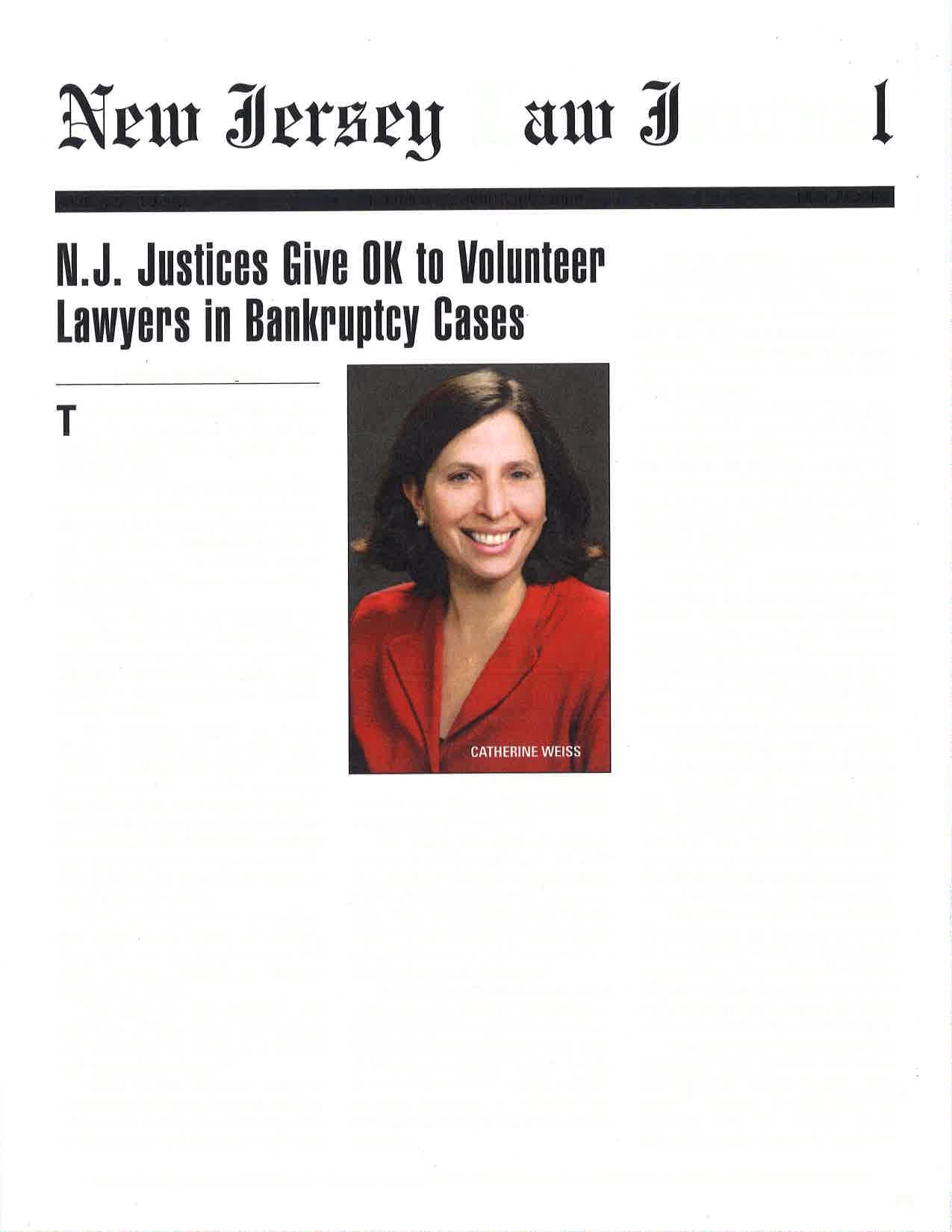

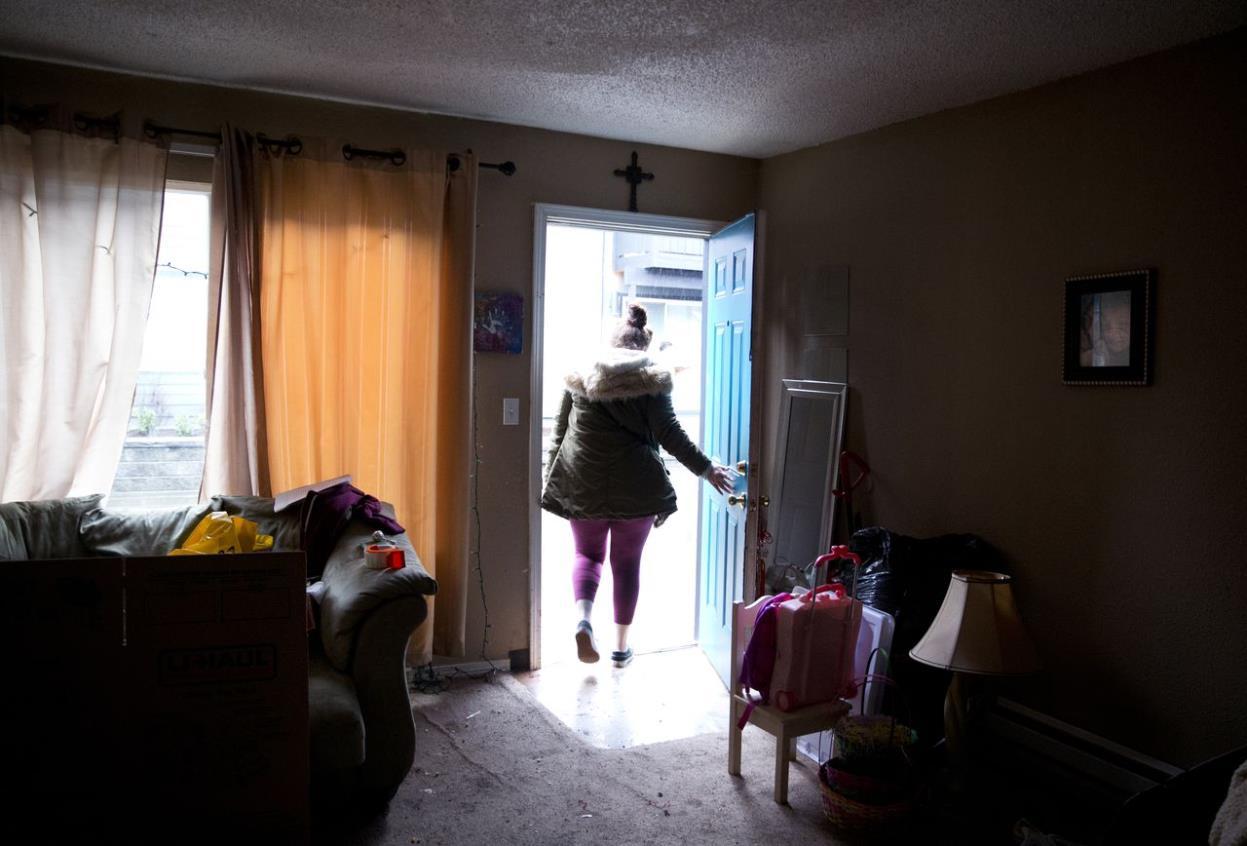
N.J. courts starting to hear eviction disputes again. Advocates fear many renters will be forced out. Updated12:45PM;Today12:01PM A renter who was forced to relocate with her two children. (LVL File)Oregonlive.com file photo
By Sophie Nieto-Munoz | NJ Advance Media for NJ.com
Inthepre-coronavirusdays,hundredsoflandlordsandtenantswouldpackintocourtroomstosettledisputesthatoftencarriedthethreat ofeviction. Beforethejudgewouldbegintheproceeding,avideowouldbeshowninEnglishandSpanishinformingeveryoneoftheirrights Sometenantsandlandlordswouldworkoutsettlementsinthehallway,whileotherswouldgototrial.Ifalandlorddidn’tshowup, thecase wasdismissed.
That ended in mid-March, when COVID-19 arrived in New Jersey, forcing a shutdown of just about everything, courts included. All trials in landlord-tenant court are suspended indefinitely, and Gov. Phil Murphy signed an executive order banning lockouts until 60 days after the public health emergency ends.
But landlords have still been allowed to file eviction actions over the last four months against some of the thousands of out-of-work New Jerseyans who could not pay their rent, contributing to the backlog that already existed.
Now, two county courthouses are beginning settlement hearings over Zoom to chop through the avalanche of filings — and housing and racial justice advocates are worried this will make it much harder for tenants to know their rights.
In letter to the administrator of the state court system, 29 community leaders, advocates and lawyers are demanding the courts take more steps to protect tenants by ensuring due process and that eviction complaints follow guidelines set by the federal CARES Act, which is designed to help residents cope with the economic fallout from the pandemic.
“If the pandemic, or this wave, is followed by waves of evictions and displaces thousands of low-income people, and it happens in a way that doesn’t serve due process, we’ll have done an incredible injustice to our neighbors,” said Catherine Weiss, chair of the Lowenstein Center for Public Interest. “It’s important for courts to take a role in ensuring fairness, because otherwise, tenants have no shot.”
Weiss said without due process, mass evictions will begin amid the public health and economic crisis, leading to greater instances of displaced families and homelessness, particularly affecting communities of color and low-income residents.
“When we say flatten the curve, it’s not just coronavirus. It’s mass eviction, and we’re going to have another wave of mass eviction and that has not been adequately discussed. The government has to play a role in making sure people don’t lose their homes because they got sick or lose their job,” she said in a phone interview with NJ Advance Media. “That’s not an acceptable consequence of the pandemic.”
The advocates say in the Zoom proceedings, there are dozens of people on and off mute in the “lobby” while the judge reads the docket. Settlements are worked out in a “breakout room” but those without access to a camera have to hang up and reenter the large video conference. Many can’t hear their rights being read, or understand that the conference is voluntary.
Weiss noted some glaring issues in landlord-tenant court — lack of legal representation for tenants, chaos swirling around hundreds of cases each day, tenants who aren’t familiar with their rights — will be exacerbated once the deluge of evictions need to be heard.
Burlington and Mercer county courthouses have already begun limited settlement conferences, in an effort to speed up the process.
A spokesman for the state court system, Peter McAleer, said the courts will work to respond to the advocates’ issues.
“We met with the authors of the letter on Wednesday and are exploring different measures to address some of their concerns,” said McAleer. “It is important to note that evictions are not occurring at this time.”
But some of these cases are being filed illegally or do not protect the tenants’ due process, the advocates said in their letter.
Under the CARES Act, landlords in federally subsidized housing, Section 8 housing or housing programs for at-risk groups like seniors and veterans, or who hold federally backed mortgages are barred from filing evictions.
In New Jersey, there are no requirements that landlords verify an eviction complies with the CARES Act. And the tenant is unlikely to know what type of mortgage their landlord has or what other properties they own. Fourteen other states require landlords to certify that they are within the federal guidelines to file eviction.
It’s unknown how many of the “thousands of eviction actions pending throughout the state were filed in violation of federal law,” the letter states. “This serious problem is compounded by the initiation of settlement hearings throughout the state.”
And tenants might not be familiar with every executive order the governor has signed and how it could affect them, Weiss added. Some residents didn’t know they still had to pay rent during an eviction moratorium, or that a landlord cannot add certain fees as additional rent.
“Many, many tenants don’t know there’s a moratorium on being removed. They often don’t know that landlord-tenant trials are suspended. They don’t know these settlements they’re entering are voluntary. These things have to be said before the tenant agrees to anything,” she stressed.
The advocates say courts should only hold the conference if both parties have lawyers and access to video. Those without a screen face a severe disadvantage and further confusion, especially during stressful negotiations, the letter says.
Allison Nolan, staff attorney with Volunteer Lawyers for Justice in Newark, said there’s been an imbalance when landlords are represented and tenants are not.
“It’s an extraordinary time,” said Nolan. “We’re all facing a lot of challenges, so these protections are more important now than ever.”
“What’s at stake in these cases is a tenant’s home,” Nolan added. “That’s why it matters so much that the court get these cases right and that tenants voices are heard.”
The state Department of Community Affairs created a $100 million rental assistance program for low-income residents or those who became unemployed due to the coronavirus pandemic in May. Applications for the lottery begin Monday. Our journalism needs your support. Please subscribe today to NJ.com. Sophie Nieto-Munoz may be reached at snietomunoz@njadvancemedia.com. Follow her at @snietomunoz.
Have a tip? Tell us. nj.com/tips
SECTION 5: Court FAQs and Forms






SECTION 6: Volunteering with VLJ
CHILDREN'S REPRESENTATION PROGRAM
Under federal and state law, children with disabilities are entitled to a free, appropriate, public education (“FAPE”). Too often, school districts deny students with disabilities this critical right. VLJ’s Children’s Representation Program assists families of children with disabilities secure a FAPE, disrupt the school to prison pipeline by addressing improper disciplinary actions, attend school without fear of Harassment, Intimidation and Bullying (“HIB”), defend families in improper truancy charges, and ensure students are not improperly excluded from school due to residency issues. We partner with some of the best special education attorneys in New Jersey to support these families.
DEBT RELIEF LEGAL PROGRAM
The Debt Relief Legal Program has the ability to move families living in a state of financial crisis toward financial freedom. Many individuals who come to VLJ are overwhelmed by medical and/or other forms of debt, are enduring harassment from debt collectors and sometimes are being sued for a debt that is not even theirs. Co-sponsored by Merck & Co., Inc. and Prudential, this program allows volunteer attorneys to undertake an invaluable service for clients by providing a range of legal services intended to bring financial relief. Through a twice-monthly, virtual legal clinic, volunteer attorneys assist pro se litigants with lawsuits in the Special Civil Part in New Jersey, in addition to screening those considering filing for Chapter 7 bankruptcy. We work to ensure poverty is transitory and defines no one.
DIVORCE PROGRAM
Divorce and family law assistance, in general, are highly unmet areas of legal need throughout the country. For many, divorce is a critical step to move forward in life and resolve compounded issues relating to their children, assets, and debts. Additionally, because legal representation can be costly, the number of self-represented litigants trying to obtain a divorce, but unaware of the process and/or their rights, continues to grow in New Jersey. VLJ’s Divorce Program allows volunteer attorneys to provide much needed advice, support, and guidance to self-represented individuals who struggle to move forward in the divorce process.
NEW JERSEY SURVIVORS JUSTICE PROJECT
Despite great strides made in addressing the crisis of human trafficking, victims/survivors often continue to face significant barriers as they work to rebuild their lives post-trafficking. VLJ’s New Jersey Survivors Justice Project partners with some of New Jersey’s leading law firms and corporations to provide legal representation on a variety of civil legal issues to help victims/survivors pursue all legal remedies to which they are entitled.
SOUTH WARD PROMISE NEIGHBORHOOD PROGRAM
The South Ward Promise Neighborhood (SWPN) was created by the U.S. Department of Education to help improve the educational and developmental outcomes of children in communities experiencing poverty. SWPN consists of 25+ community organizations and
schools collaborating to provide resources and a strong support system to families in Newark’s South Ward so children can thrive in school, college, and career. In addition to other supportive services being provided through SWPN, VLJ and its volunteer attorneys provide critical holistic civil legal services to families who live in Newark’s South Ward.
PRIDE NAME CHANGE PROGRAM
VLJ's PRIDE (Promoting Rights, Identity, Dignity, and Equality) Name Change Program assists community members seeking to change their legal name in New Jersey. Attorney and non-attorney volunteers work in teams to meet with clients, help prepare pleadings, collect necessary documentation, and file petitions using the courts’ online filing system (JEDS). Please note, a queer identity is not a requirement for clients to obtain assistance; however, VLJ prioritizes assisting trans, nonbinary, and non-cisgender individuals through this program.
REENTRY LEGAL SERVICES (RELESE)
One in three U.S. adults have a criminal record. That is 70 million people the same number as those with a college degree. 9 out of 10 employers review criminal backgrounds when deciding which employee to hire. 4 out of 5 landlords check criminal backgrounds when choosing a renter. And when there is a disproportionate number of Black, Latino/Latina, and other minority communities caught up in the criminal legal system, families can be trapped in a vicious cycle of poverty for generations.
Through VLJ’s ReLeSe Program, volunteer teams comprised of attorneys and non-attorneys advise clients during limited-scope legal clinics on their eligibility for record clearing relief. Additionally, volunteers can provide limited-scope assistance by e-filing pro se petitions for eligible petitioners. Volunteers can also represent eligible clients with complex cases or other hardships that require attorney involvement. Finally, volunteers are also needed to respond to objections or file Motions to Enforce Litigant’s Rights to ensure expungements proceed and are processed in a timely manner.
Clients who successfully receive an expungement benefit from increased employment opportunities, economic independence, housing stability, productive citizenship, while reducing recidivism and building safer communities. In short, expungement provides lifechanging relief.
VETERANS LEGAL PROGRAM
Every year, approximately 200,000 men and women leave U.S. military service and return to life as civilians. These veterans face a number of challenges when transitioning to civilian life, some of which include or may lead to ongoing civil legal issues. Founded in 2014 with PSEG, VLJ’s Veterans Legal Program (VLP) provides a lifeline to veterans who face legal issues after serving our county. VLJ hosts two virtual clinics a month where volunteers provide a holistic legal “check up” for veterans to determine what issues are holding them back and when legal relief is possible. Volunteers also provide ongoing assistance in areas of high-need among veterans including driver’s license restoration, criminal record expungement, and child support modification.
VOLUNTEERING WITH VLJ
Volunteer Lawyers for Justice Website: www.vljnj.org
New volunteers should register online at https://www.vljnj.org/become-a-pro-bono-volunteer.
Go to the “Volunteer” tab of the website and complete a Volunteer Form
As a registered volunteer, you will begin receiving our direct referral case list and will be contacted by VLJ staff about your volunteer interests.
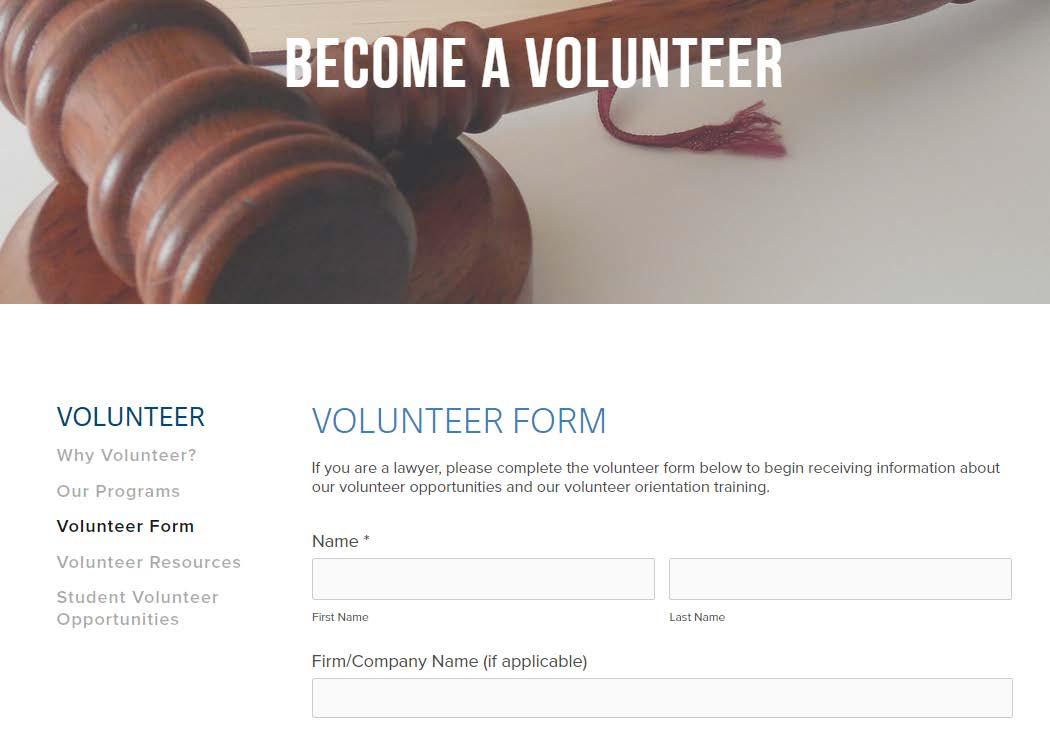
Thank you for your support of

